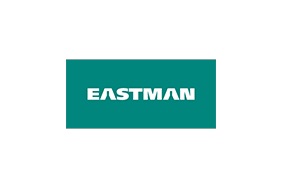Kingsport Pollinator Gardens Receive Keep America Beautiful Innovation Award
Published 04-10-24
Submitted by Eastman

A network of pollinator gardens — the brainchild of an Eastman engineer — has been recognized by Keep America Beautiful with a 2023 Innovation Award, one of only 10 presented across the country.
Neil Brown, who specializes in life cycle assessment, was on hand when Keep Kingsport Beautiful leaders accepted the award in San Diego, California. Brown said dozens of people could have stood alongside him — including many co-workers.
Keep Kingsport Beautiful led the local partnership of volunteers, schools and businesses that combined forces to create over 5,000 square feet of garden space at four elementary schools in Kingsport, Tennessee: Johnson, Lincoln, Kennedy and Washington. Eastman was one of the organizations that contributed grant funding for the gardens, and its people were among the dozens of volunteers who contributed tools, time and labor.
For two years, Brown has recruited people from Eastman to contribute a few hours on evenings or Saturdays to the gardening project. About 50 company volunteers contributed.
“We’ve got a lot of people at Eastman who are passionate about sustainability and the environment, so I’m not surprised about the response,” Brown said. “It’s great to be able to lean on colleagues. They’ve really shown up.”

Gardens illustrate environmental connection
For weeks, dozens of volunteers gathered outside Washington Elementary School after the workday and on Saturdays, determined to turn a nondescript, grassy field into a pollinator garden.
Craig Leonberg, an Eastman mechanical engineer, will never forget the start of the project when shovels were useless against the hard ground.
“We had to get a tiller,” Leonberg said, “and we broke the first tiller we rented.”
They still finished the garden. Like the others, it’s now populated with native perennial plants that provide food and habitat for a broad range of animal species — butterflies, moths and bees, some birds, and even bats — that pollinate plants and trees critical for a healthy ecosystem.
Leonberg and his wife, Alanna, have two children who were students at Washington Elementary, and Alanna, as president of the parent-teacher association, was instrumental in working with school leaders to get the project going.
At Eastman, Leonberg works on the decarbonization strategy as well as building and refining digital tools to increase energy efficiency. His work can be difficult to explain to younger generations, so he relished a project that illustrated the importance of sustainability so well. Now, students can see how gardens with plants such as milkweed and bee balm can make a difference for creatures that are vital in many ways. For example, one in three bites of food you eat depends on the plant fertilization provided by pollinating species.
“Even if I’m not able to explain all the details of what I do at Eastman to my kids, they understand that what we’re doing is protecting the environment,” Leonberg said. “And now they can see a project on a different scale that’s also about the environment. This is a way for students to get involved at an early age, learn about life cycles and biodiversity, and start thinking about what they can do to have a positive impact when they grow up. It’s all connected.”
The Keep America Beautiful recognition aside, the work isn’t done. Keep Kingsport Beautiful plans to build two additional gardens this spring at Jackson and Jefferson elementary schools.
“We’re going to be very aggressive this spring,” Brown said. “We know we can count on a lot of volunteers who are already involved, and we’re going to recruit more.”

Eastman
Eastman
Founded in 1920, Eastman is a global specialty materials company that produces a broad range of products found in items people use every day. With the purpose of enhancing the quality of life in a material way, Eastman works with customers to deliver innovative products and solutions while maintaining a commitment to safety and sustainability. The company’s innovation-driven growth model takes advantage of world-class technology platforms, deep customer engagement, and differentiated application development to grow its leading positions in attractive end markets such as transportation, building and construction, and consumables. As a globally inclusive and diverse company, Eastman employs approximately 14,000 people around the world and serves customers in more than 100 countries. The company had 2023 revenue of approximately $9.2 billion and is headquartered in Kingsport, Tennessee, USA.
About Eastman in the circular economy: In 2019, Eastman became the first company to begin commercial-scale chemical recycling for a broad set of waste plastics that would otherwise be landfilled or, worse, wind up in the environment. Eastman's molecular recycling technologies can process waste plastics traditional mechanical recycling methods cannot—including polyesters, polypropylene, polyethylene, and polystyrene—derived from a variety of sources, including single-use plastics, textiles, and carpet. These technologies provide a true circular solution of endless recycling for materials, allowing them to be reused repeatedly.
To learn more about how we’re working to make a more circular economy visit eastman.eco.
More from Eastman

